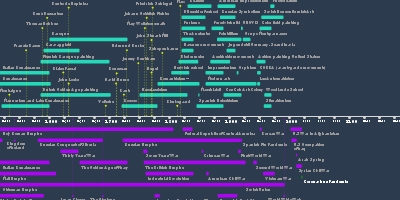jan 1, 545 BC - Heráclito
Description:
Heraclitus of Ephesus (/ˌhɛrəˈklaɪtəs/;[1] Greek: Ἡράκλειτος ὁ Ἐφέσιος, translit. Hērákleitos ho Ephésios; c. 535 – c. 475 BC, fl. 504/3 BC – 501/0 BC)[2] son of Bloson,[2] was a pre-Socratic Ionian Greek philosopher, and a native of the city of Ephesus, in modern-day Turkey and then part of the Persian Empire.Due to the oracular and paradoxical nature of his philosophy, and his fondness for word play, he was called "The Obscure" even in antiquity. He wrote a single work, On Nature, but the obscurity is made worse by its remaining only in fragments. His cryptic utterances have been the subject of numerous interpretations. He has been seen variously as a "material monist or a process philosopher; a scientific cosmologist, a metaphysician, or mainly a religious thinker; an empiricist, a rationalist, or a mystic; a conventional thinker or a revolutionary; a developer of logic or one who denied the law of non-contradiction; the first genuine philosopher or an anti-intellectual obscurantist."[3]
He was of distinguished parentage but eschewed his privileged life for a lonely one as a philosopher. Little else is known about his early life and education. He regarded himself as self-taught and a pioneer of wisdom. He was considered a misanthrope given to depression; he was also called "the weeping philosopher", in contrast to Democritus, "the laughing philosopher".
Heraclitus believed the world was in accordance with Logos (literally, "word", "reason", or "account"). He also believed the world was ultimately made of fire. He was committed to a unity of opposites and harmony in the world. He was most famous for his insistence on ever-present change, or flux or becoming, as the characteristic feature of the world, as stated in the famous saying, "No man ever steps in the same river twice" as well as "Panta rhei", everything flows. This aspect of his philosophy is contrasted with that of Parmenides, who believed in being, and that nothing changes. Both had an influence on Plato and thus, some speculate, on all of Western philosophy.
Added to timeline:
Date:
jan 1, 545 BC
Now
~ 2572 years ago
